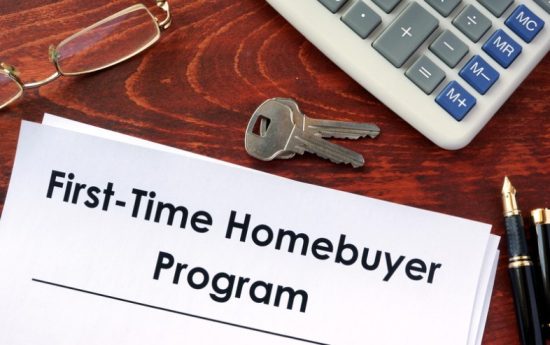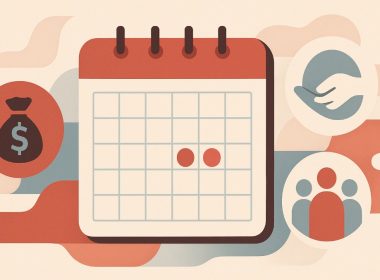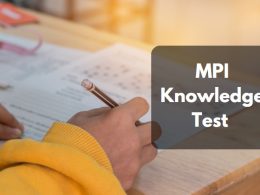Welcome to the exciting world of home ownership in Ontario! If you’re a first-time buyer, congratulations on taking this big step toward owning your piece of real estate. Buying your first home is an exhilarating journey filled with anticipation and new opportunities. However, it can also be overwhelming if you don’t have all the information you need.
That’s why we’re here to guide you through the process and provide valuable insights into what every first-time homebuyer in Ontario should know. From understanding the First Time Home Buyer Program to exploring down payment assistance options and navigating mortgage financing, we’ve got you covered.
So grab a cup of coffee, sit back, and let us walk you through everything you need to know as a first-time homebuyer in Ontario. By the end of this article, you’ll feel confident and well-prepared to embark on your homeownership journey with ease and excitement. Let’s get started!
What is the First Time Home Buyer Program in Ontario?

The First Time Home Buyer Program in Ontario is a government initiative designed to support individuals purchasing their first home. This program aims to make homeownership more accessible and affordable by providing financial assistance, tax credits, and rebates.
Through this program, eligible first-time buyers may be able to receive up to $750 in reimbursement for land transfer taxes. This can greatly lower the up-front expenditures related to purchasing a home. Additionally, first-time buyers can also benefit from the First-Time Home Buyers’ Tax Credit (HBTC), which offers a non-refundable tax credit of up to $5,000.
One key aspect of the program is the availability of down payment assistance options. The Ontario Government offers two programs specifically targeted toward helping first-time buyers with their down payments: the Home Buyers’ Plan (HBP) and the First-Time Homebuyer Incentive (FTHBI).
What a First-time Home Buyer in Ontario Should Know?
Purchasing your first house is a memorable and joyful milestone. However, it can also be a daunting process if you’re not familiar with the ins and outs of the real estate market. As a first-time home buyer in Ontario, there are several key things you should know to ensure a smooth and successful home-buying experience.
It’s critical to have a solid grasp of your financial situation, including your budget. Determine how much you can afford by considering factors such as your income, expenses, and savings. This will help you set realistic expectations when searching for homes within your price range.
Next, educate yourself about the various types of properties available in Ontario’s housing market. Whether it’s detached houses, townhouses or condominiums – each option has its advantages and considerations regarding maintenance costs, property taxes, and potential resale value.
Additionally, familiarize yourself with the different neighbourhoods across Ontario that align with your lifestyle preferences. Research schools, and amenities like parks or shopping centres nearby since they all contribute to the overall desirability of an area.
Who Qualifies as a First-Time Buyer in Ontario?
To take advantage of the First Time Home Buyer Program in Ontario, you need to meet certain criteria. The program is designed specifically for individuals who have never owned a home before or have not owned one within the last four years. This means that if you previously owned a home but sold it more than four years ago, you may still be eligible.
Additionally, there are income restrictions that apply. To qualify as a first-time buyer in Ontario, your household income must be below a certain threshold. The exact amount varies depending on factors such as the size of your family and the location of the property you plan to purchase.
It’s important to note that both spouses or common-law partners can be considered first-time buyers individually even if only one meets all the qualifications. This allows couples to maximize their benefits under the program.
To prove your eligibility as a first-time buyer, you will need documentation such as tax returns, pay stubs, and bank statements. Be sure to gather these documents ahead of time so that you can provide them when necessary.
Understanding who qualifies as a first-time buyer in Ontario is crucial before embarking on your journey toward homeownership. By meeting these requirements and taking advantage of available programs and assistance options discussed earlier in this article, you can make your dream of owning a home become a reality!
Down Payment Assistance Options in Ontario

Saving up for a down payment can be one of the biggest challenges for first-time homebuyers. Thankfully, there are several down payment assistance options available in Ontario to help make homeownership more attainable.
- One popular program is the First-Time Home Buyer Incentive, which allows eligible buyers to finance a portion of their down payment through a shared equity mortgage with the government. This means you don’t have to come up with as much money upfront and can reduce your monthly mortgage payments.
- Another option is the Home Buyers’ Plan (HBP), which allows first-time buyers to withdraw up to $35,000 from their Registered Retirement Savings Plans (RRSPs) tax-free. This money can then be used towards a down payment on your new home.
- Additionally, some municipalities and non-profit organizations offer grants or forgivable loans specifically for first-time homebuyers. These programs vary by location, so it’s worth researching what options are available in your area.
- Remember that each program has its own eligibility criteria and application process, so it’s important to do thorough research and consult with professionals before making any decisions.
Mortgage Options and Financing Assistance
When it comes to buying your first home in Ontario, understanding the mortgage options available to you is crucial. There are several types of mortgages you can explore, each with its pros and cons.
- One option is a fixed-rate mortgage, where the interest rate stays the same throughout the term of your loan. This offers steadiness and enables you to appropriately organize your budget. On the other hand, an adjustable-rate mortgage offers a lower initial interest rate that may increase or decrease over time based on market conditions.
- Another consideration is whether to go with a conventional or high-ratio mortgage. A conventional mortgage typically requires a down payment of at least 20% of the purchase price, while a high-ratio mortgage allows for a smaller down payment but requires mortgage insurance.
- To help first-time buyers afford their dream homes, there are also various financing assistance programs available in Ontario. The First-Time Home Buyer Incentive (FTHBI) provides shared equity loans from the government for purchasing newly constructed or existing homes. Additionally, some municipalities offer financial aid programs that provide grants or forgivable loans to assist with down payments or closing costs.
- It’s important to do thorough research and consult with lenders who specialize in working with first-time buyers. They can guide you through the process and help determine which mortgage option suits your needs best.
Tax Credits and Rebates for First-Time Homebuyers
One of the perks of being a first-time homebuyer in Ontario is the availability of tax credits and rebates that can help ease the financial burden. These incentives are designed to encourage homeownership and make it more affordable.
- The first credit to consider is the First-Time Home Buyers’ Tax Credit (HBTC). This non-refundable tax credit allows eligible buyers to claim up to $5,000 on their income tax return. It’s important to note that this credit can only be claimed once, so if you’ve already used it in a previous year, you won’t be able to claim it again.
- In addition to the HBTC, there are also rebates available for certain expenses related to buying a home. For example, if you purchase a newly built or substantially renovated home, you may qualify for the New Housing HST Rebate. This rebate allows you to recover some of the harmonized sales tax (HST) paid on your purchase.
- Furthermore, there is also an opportunity for savings through land transfer tax refunds. In Ontario, first-time buyers may be eligible for a refund of up to $4,000 on provincial land transfer taxes. Additionally, some municipalities offer their own land transfer tax refunds or deferrals.
- These tax credits and rebates can significantly reduce the financial burden associated with purchasing your first home in Ontario. It’s essential to research and understand all available options before making your purchase decision as they vary depending on individual circumstances
Steps and Process for First-Time Homebuyers in Ontario

When it comes to buying your first home in Ontario, it’s important to understand the steps and processes involved. This will help you navigate through the journey with confidence and ensure a smooth transaction.
Here are some key steps that every first-time homebuyer in Ontario should know:
- Determine your budget: Start by assessing your finances and determining how much you can afford to spend on a home. Consider factors like down payment, closing costs, monthly mortgage payments, and maintenance expenses.
- Get pre-approved for a mortgage: Before you start house hunting, it’s wise to get pre-approved for a mortgage loan from a lender or bank. This will simplify the purchasing process and give you an estimate of how much money you can borrow.
- Find a real estate agent: Working with an experienced real estate agent who specializes in helping first-time buyers is highly recommended. They can guide you through the process, provide valuable insights about neighbourhoods, arrange property viewings, negotiate offers on your behalf, and assist with paperwork.
- Start house hunting: Once you have determined your budget and enlisted the help of an agent, it’s time to start searching for your dream home! Visit open houses, attend showings arranged by your agent, and explore different neighbourhoods until you find the perfect fit.
- Make an offer: When you find a property that meets all your criteria, work closely with your real estate agent to make an offer that reflects its market value while staying within your budgetary constraints.
- Conduct inspections: If your offer is accepted by the seller (congrats!), schedule professional inspections of the property to identify any potential issues or repairs needed before finalizing the purchase agreement.
- Secure financing: Once inspections are complete and any necessary negotiations have been made based on their results; secure financing by finalizing all necessary paperwork with lenders or banks.
- Closing day!: On this exciting day – known as closing day – all the necessary documents are signed, and you officially become a homeowner!
Conclusion
We hope this article has provided some useful insight into the home-buying process in Ontario and what a first-time homebuyer should expect. With these tips, you can be sure that your first-time home-buying experience will go as smoothly as possible. Remember to take your time when making decisions about which house to buy, make sure you get advice from trusted professionals who are experienced with the real estate market in Ontario and don’t forget to budget for unexpected costs! Good luck and happy house hunting!
FAQs on First Time Home Buyer in Ontario
1. What are the first time home buyer benefits in Ontario Canada?
Using a shared equity mortgage with the Government of Canada, the First-Time Home Buyer Incentive provides 5% or 10% off the price of a newly built home for first-time buyers. 5% for the purchase of a resale (existing) home by a first-time buyer.
2. What is the average age to buy your first home in Canada?
In Canada, first-time homebuyers are typically 36 years old. This is mostly because many had to put money down for five to 10 years in order to make a fair down payment.
3. Does Canadian government help first-time home buyers?
First-time home purchasers can raise their down payment with the assistance of the Canada Mortgage and Housing Corporation’s (CMHC) First-Time Home Buyer Incentive.










